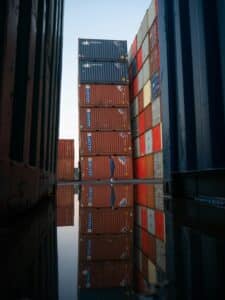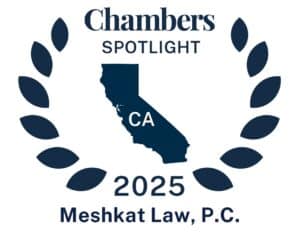In many instances where I’ve been called upon to evaluate a business’s trade compliance program, I notice that company policy is to prohibit any and all dealings with Sudan. It always makes me wonder if their respective compliance unit missed the memo back in October 2017 when President Obama gutted the comprehensive U.S. embargo on Sudan that had been administered by the U.S. Department of the Treasury’s Office of Foreign Assets Control (“OFAC”) for over a decade, along with the U.S. Department of Commerce’s Bureau of Industry and Security (“BIS”) removing its stringent export controls treatment for Sudan. Nevertheless, I still wouldn’t advise my clients to go as far as treating Sudan like Canada, Germany, or Japan in their trade compliance programs, as there continue to be sanctions risks. This is because OFAC still administers various sanctions authorities targeting Sudan (and the nascent South Sudan), which were expanded upon on May 4, 2023 when President Biden issued Executive Order (“E.O.”) 14098 in response to the recent military conflict there.
Where there’s risks in dealing with Sudan and/or South Sudan, it’s especially important for businesses to understand the current scope of OFAC sanctions programs targeting these destinations—including the significant changes to sanctions and export controls authorities for Sudan since 2017—to ensure their trade compliance programs are “in tune” with applicable regulatory requirements. Here I provide an overview of the relevant past and present for U.S. sanctions and export controls on Sudan/South Sudan, along with certain compliance considerations.
Former Comprehensive Embargo and Stringent Export Controls
The comprehensive U.S. embargo of Sudan began with the issuance of E.O. 13067 of November 3, 1997 and the national emergency declared therein with respect to Sudan’s Government. It was later expanded with E.O. 13412 of October 13, 2006 and other subsequent Executive orders. However a decade later, pursuant to E.O. 13761 of January 13, 2017, as amended by President Trump in E.O. 13804 of July 11, 2017, sections 1 and 2 of E.O. 13067 and all of E.O. 13412—the foundations for the comprehensive embargo—were revoked, and with them the broad prohibitions on U.S. persons for engaging in virtually any transactions or dealings with Sudan and the Government of Sudan. This led to OFAC removing their entire Sudanese Sanctions Regulations (“SSR”), 31 C.F.R. Part 538, from the Code of Federal Regulations on June 29, 2018, as well as removing from the Specially Designated Nationals and Blocked Persons (“SDN”) List any person that was designated solely pursuant to the blocked authorities of Executive orders E.O. 13067 or E.O. 13412.
On December 14, 2020, Sudan was also removed from the U.S. government’s list of State Sponsors of Terrorism by the Secretary of State, which had not only made Sudan subject to OFAC’s Terrorism List Government Sanctions Regulations, 31 C.F.R. Part 596—prohibiting U.S. persons from engaging in any financial transactions with its government—but also the Trade Sanctions Reform and Export Enhancement Act of 2000, 22 U.S.C. § 7205, and its licensing requirements for the export of agricultural commodities, medicine, and medical devices. As a result of that removal, BIS amended its Export Administration Regulation’s (“EAR”) to remove the Anti-Terrorism (“AT”) controls that had previously placed Sudan in the company of Cuba, Iran, North Korea, and Syria. Sudan was also removed from Country Group E:1 of the EAR (Terrorist supporting countries) and bumped up to Group B, making it eligible for numerous new BIS license exceptions, and the EAR’s 25% de minimis rule rather than its most stringent 10% de minimis rule.
Although the foregoing regulatory requirements are now history, any past dealings with Sudan or its government that were prohibited at the time, are still fair game for a potential government enforcement action so long as they are within the 5-year statute of limitations. Therefore, self-disclosures of any such potential violations should still be on the table for any such businesses.
Current List-Based Sanctions Programs for Sudan and South Sudan
While the comprehensive embargo on Sudan was on-going under the purview of the national emergency declared in E.O. 13067, Sudan split into two sovereign nations in 2011: Sudan and South Sudan. On April 3, 2014, in response to internal strife in South Sudan, President Obama issued E.O. 13664, declaring a national emergency to deal with that foreign policy issue—separate and distinct from the one for Sudan—and authorizing the imposition of blocking sanctions on persons determined to satisfy certain specified designation criteria. This created OFAC’s South Sudan sanctions program, which has its own set of regulations under 31 C.F.R. Part 558, the South Sudan Sanctions Regulations (“SSSR”). Consequently, OFAC now had (and continues to have) a sanctions program for Sudan, and one for South Sudan.
In addition, on April 26, 2006 President Bush issued E.O. 13400 in order to deal with the conflict in Sudan’s Darfur region, authorizing the imposition of blocking sanctions on persons determined to satisfy certain designation criteria related to the conflict. Although OFAC has scrapped the SSR for its Sudan sanctions program (formally known as the “Sudan and Darfur Sanctions” program), the Darfur Sanctions Regulations (“DSR”), 31 C.F.R. Part 546, that implemented E.O. 13400, are still in effect under that program. As introduced above, E.O. 14098 is the newest authority to be issued under the Sudan sanctions program, authorizing the imposition of blocking sanctions on foreign persons determined by the Secretary of the Treasury to be engaged in certain types of conduct related to the destabilization of Sudan and the undermining of its democratic transition. The DSR have not yet been amended to incorporate the prohibitions of E.O. 14098. Nevertheless, the two sanctions authorities currently in effect for OFAC’s Sudan sanctions program are limited to Executive orders 13400 and 14098, while E.O. 13664 is the sole authority for its South Sudan sanctions program.
Coming full circle, OFAC’s Sudan and South Sudan sanctions programs are essentially “list-based” sanctions programs, and not “comprehensive embargoes” as Sudan previously was under the collective prohibitions of the SSR. This means their respective underlying sanctions authorities—Executive orders 13400, 13664, and 14098—are limited to imposing full blocking sanctions on persons determined by Treasury to have engaged in the specified targeted conduct. Consequently, U.S. persons are required to block and report to OFAC the property interests of persons designated and identified on the agency’s Specially Designated Nationals and Blocked Persons (“SDN”) List pursuant to such authorities, as well as any entity that is constructively blocked pursuant to OFAC’s 50 Percent Rule. Persons subject to U.S. jurisdiction are also prohibited from engaging in virtually any transactions or dealing with such blocked persons, unless authorized by a license or statutorily exempt.
Compliance Considerations
With the comprehensive embargo on Sudan lifted, to the extent any businesses haven’t already, they should consider updating their compliance programs and relevant procedures where they otherwise have in place a hard stop (i.e., blanket prohibition) for all transactions potentially involving Sudan. True that businesses may have non-sanctions based reasons for prohibiting dealings by their officials with Sudan. However, where this isn’t the case, should the program ever be reviewed by a government regulator (e.g., in an OFAC enforcement action), it suggests that the business does not sufficiently assess its sanctions risks to ensure proper internal controls, leaving the compliance program to appear out-of-date.
Since OFAC’s Sudan and South Sudan sanctions programs are list-based, and BIS also identifies numerous Sudanese and South Sudanese entities on its Entity List, businesses with global operations—especially those more prone to engaging in any dealings involving Sudan or South Sudan—should ensure that they have appropriate restricted party screening controls and tools in place to identify potential dealings with OFAC and/or BIS restricted parties before they occur. This includes screening against the SDN and Entity lists.
Finally, businesses with potential dealings involving Sudan or South Sudan in the course of their operations should also ensure they don’t inadvertently engage in conduct that is targeted by the designation criteria of Executive orders 13400, 13664, or 14098. Accordingly, transactions involving these countries may require enhanced review.
The author of this blog post is Kian Meshkat, an attorney specializing in U.S. economic sanctions and export controls matters. If you have any questions please contact him at meshkat@meshkatlaw.com.







